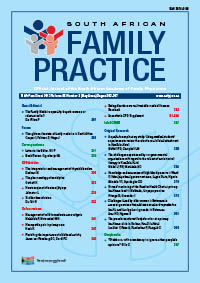Revisiting the importance of childhood activity
Keywords:
Youth exercise, youth health, obesity, diabetes, resistance training
Abstract
Formalised exercise programmes for children and adolescents are becoming increasingly important. There has been a drastic increase in documented childhood morbidity and mortality relating to poor nutrition and low activity levels in recent years. Regular physical activity decreases the risk of chronic disease and is also a fundamental component in the management of illnesses. Recommendations for the paediatric population remain insufficient and ill-defined. This article revisits the risks of physical inactivity in childhood and provides the latest recommendations for exercise prescription in the paediatric population. Inactive children have a higher risk of developing chronic diseases, such as obesity, type 2 diabetes, high blood cholesterol and hypertension. Other undesirable consequences include orthopaedic problems, cardiovascular disease and various psychological complications. Both aerobic and resistance training should be incorporated into paediatric exercise programmes. The recommended guidelines for childhood activity are 60 minutes of moderate-intensity exercise every day of the week. This article highlights the importance of formalised paediatric exercise programmes in disease prevention and health promotion. A healthy and happy adolescent population ultimately contributes to an adult population with a low risk of ill health.
Published
2013-03-07
Section
Review Articles
By submitting manuscripts to SAFP, authors of original articles are assigning copyright to the South African Academy of Family Physicians. Copyright of review articles are assigned to the Publisher, Medpharm Publications (Pty) Ltd, unless otherwise specified. Authors may use their own work after publication without written permission, provided they acknowledge the original source. Individuals and academic institutions may freely copy and distribute articles published in SAFP for educational and research purposes without obtaining permission.

